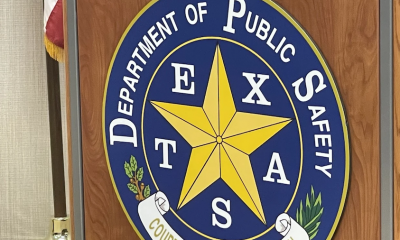Texas
Four reasons the Texas ‘constitutional carry’ bill is in limbo

TX – Both the Texas House and Senate have agreed in large part to the concept of so-called “constitutional carry” legislation to allow most Texans to carry a handgun without a permit.
But there has been a split in the two chambers over amendments added into the bill by the Senate to ease opposition from law enforcement groups and win more support from lawmakers.
“We are so close to getting this done,” said Andi Turner, legislative director for the Texas State Rifle Association.
While the differences have yet to be settled, Turner said his group is “fully behind” the legislation and is encouraging its members to talk to lawmakers to get the bill to the finish line.
None of the changes has diminished the fierce opposition to House Bill 1927 from most Democrats and gun control advocacy groups who have been largely powerless in stopping the bill so far. Many in law enforcement also continue to oppose the bill.
“The Texas Police Chiefs Association remains strongly opposed to the unlicensed carry of handguns,” a letter from the group to lawmakers stated.
But which of the Senate amendments are causing the most trouble in GOP circles is largely a mystery given the debate over it in conference committee is happening in closed-door sessions away from public view.
At any time, the conference committee could declare a deal has been struck on the measure. Or the legislation could die, along with hundreds of other bills that will be shelved over the next two weeks.
Here is a closer look are the key amendments added to House Bill 1927 by the Senate that resulted in the House rejecting the Senate’s version, and the ongoing negotiations.
Amendment 1
One of the most important amendments to the Senate bill was heavily pushed for by law enforcement groups and involves disarming people.
The House version prohibited police from taking a gun from a person who enters a police station unless the department has a gun locker to store the weapon. The Senate, noting some police facilities do not have a locker area for visitors to store arms, added a phrase that says police have to secure it in a gun locker or “other secure area.”
The Sheriff’s Association of Texas has argued its members must have the ability to disarm people whether there is a gun locker or not.
“The ability for law enforcement to temporarily disarm a person lawfully detained, with any kind of weapon, was imperative,” says a letter sent to state Sen. Charles Schwertner by the group. Schwertner, R-Georgetown, is the lead sponsor in the Senate of the bill. He added the amendment to the bill as well as other provisions that are also under debate.
Amendment 8
Another substantive problem for critics in the House has been Senate Amendment 8, which ups the penalties for felons and domestic violence offenders carrying a gun illegally. More specifically, the punishment for a felon caught carrying a gun illegally would go from two to 10 years of incarceration to a five- to 20-year sentence.
For people who have previously been convicted of domestic violence or have a protective order against them, illegally carrying a gun would jump from a misdemeanor to a third-degree felony.
Those increased penalties were a must for some members of the Senate like Sen. Jane Nelson, R-Flower Mound, who in floor debates expressed concern about the safety of domestic violence victims. Nelson was the author of legislation years ago that allowed judges to disqualify domestic violence offenders — or those with protective orders against them — from obtaining a handgun license.
“One of my biggest struggles has been with the issue of domestic violence victims,” Nelson said.
To secure her vote and others, Schwertner upped the penalties — a move also pushed by law enforcement groups.
But some gun rights organizations say they’ve gone too far.
“We think it unreasonably harsh to give a possible 20-year jail sentence to someone for mere possession of a neutral object …,” the Texas chapter of Gun Owners of America said in a statement to its members opposing the amendment before Schwertner first offered it back on May 5.
The Senate has since tried to soften that amendment by targeting felons with violent crimes in their backgrounds.
Amendment 14
Adding to the debate over the bill is Senate Amendment 14, added by Schwertner. It requires that the Texas Department of Public Safety develop and post on the department’s website a course on firearm safety and handling that is free to the public.
As innocuous as that seems, it has put the bill in jeopardy in the House, which has strict rules to prevent lawmakers from incorporating a wide array of changes into a single bill. When Rep. Matt Schaefer, R-Tyler, brought the bill up for a vote in the House with the Senate amendments, Rep. Chris Turner, a Democrat from Grand Prairie, was quick to issue a point of order arguing that Amendment 14 was “not germane” to the rest of the bill.
Turner lost that initial fight, but Schaefer ultimately refused to accept the Senate amendments and sent the whole bill to the conference committee.
Amendment 7
Another key difference between the bills is how to address people who are carrying guns while intoxicated.
Sen. Brian Birdwell, R-Granbury, was able to add Senate Amendment 7 that would make it a crime to carry a handgun while intoxicated, but made clear it only applies when a person is not on his or her property or on someone else’s private property with consent.
The Texas Gun Owners America has opposed the intoxication provision, saying it was too broadly written and should only apply to public locations.
The House version has no such provision barring intoxicated people from carrying guns in public.










